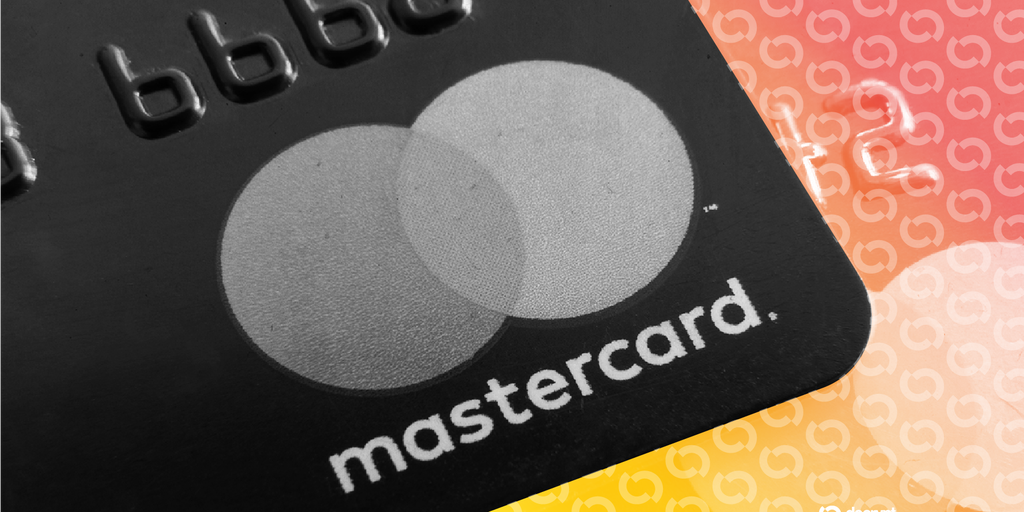Brief
- Bitget Wallet has teamed up with Mastercard and immersve to launch a payment card linked to the crypto.
- The card, available in the Bitget Wallet application, has a cryptographic colony in real time at no cost.
- Initially launched in the United Kingdom and the EU, the deployment is currently excluding “regulatory approvals” awaiting the United States.
Bitget Wallet is launching a payment card in partnership with Mastercard and Infrastructure Provider Immersve, allowing its users to spend the crypto with more than 150 million merchants worldwide.
Available via the Bitget Wallet application, the Bitget Wallet card does not require any costs and allows real-time financing via Swaps and deposits on a chain, while purchases are set to the channel via crypto-to-fiat conversions.
It will initially be launched in the United Kingdom and the European Union, before deploying later in Latin America, Australia and New Zealand.
The product operates the suite of MasterCard digital tools, so that users can apply for the card via the Bitget Wallet application, then add it to the wallets of their smartphone in a few minutes.
From there, a large part of the daily operation of the Bitget Wallet card will be obtained via immersve, with CEO Jerome Faury saying Decipher His company provides the backend infrastructure necessary to connect the MasterCard payment rails.
“This includes APIs for the emission of cards, processing of transactions, protocol and chain regulations, as well as compliance tools such as KYC and AML integration,” he said. “Immershed allows real -time and native expenses of the user portfolio blockchain while ensuring that the transaction fiduciary leg is managed in complete safety and in accordance with Mastercard and Regulatory requirements.”
According to Bitget Wallet, the launch of the card meets the growing demand for users to make daily payments using crypto. Some 40% of Bitget portfolio users interviewed in the world used the crypto for payments, Bitget Wallet CMO Jamie Elkaleh said Decipher“With higher demand in emerging markets such as Southeast Asia and Africa.”
Elkaleh also explained that demand is higher among users of generation Y and generation Z, while regions with less developed banking infrastructure also display a larger demand than the average payments based on cryptography.
He added that “Bitget Wallet has observed an increasing traction in its vertical” salary “, and the card is a natural extension of this request, offering a familiar way to spend digital assets while retaining chain control.”
Cryptographic maps
While the card is deployed on several continents, a notable omission at the moment is North America, and in particular the United States.
Elkaleh explained that there is no final plan to bring the product to the States, but that this could change according to regulatory developments.
“The United Kingdom and the EEE have priority due to their clear regulatory environments and their high level of adoption of cryptographic cards,” he said Decipherexplaining that the deployment of the card in the United States “depends on obtaining appropriate regulatory approvals and the creation of local emission provisions”.
Despite the absence of a confirmed launch date for the American market, Bitget Wallet and its partners “actively explore these steps”, with Gemini and Coinbase among the cryptocurrency platforms that have already launched cards in the United States.
While the Coinbase card is offered in partnership with Visa, Gemini is another company that has teamed up with Mastercard, which said Decipher That it has been “committed” to fill cryptography and traditional finance for several years now.
“This includes a range of card products, with partners like Gemini, Bybit, Metamask, etc.
For Rau, one of the main advantages of the partnership with Mastercard is that it provides Bitget Wallet users – and the merchants at the other end of their transactions – with the highest level of security.
He explained that transactions using the card are “protected by Mastercard and LMA requirements, in addition to several other anti-fraud protections and advantages”.
Great expenditure?
The launch of the Bitget Wallet card occurs at a time when the cards linked to cryptography gain more traction for online purchases, with A recent Cex.io report Indicating that almost half of all payments made using these cards are values of € 10 ($ 11.75) or lower.
The same report also revealed that the average transaction for cryptographic cards is € 23.70 ($ 27.85), while for traditional bank cards, it’s € 33.60 ($ 39.48).
Daily debriefing Bulletin
Start every day with the best reports at the moment, as well as original features, a podcast, videos and more.


